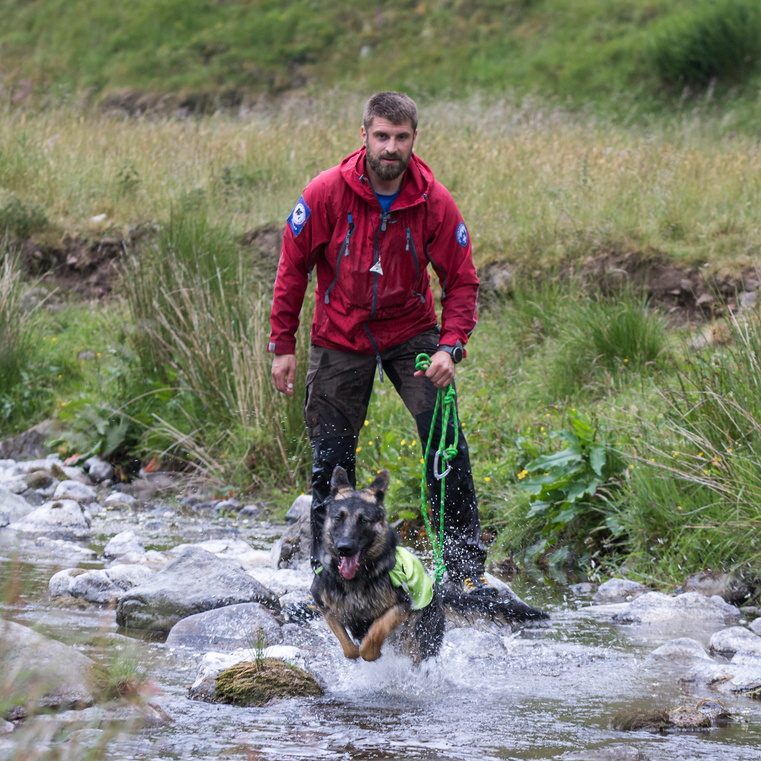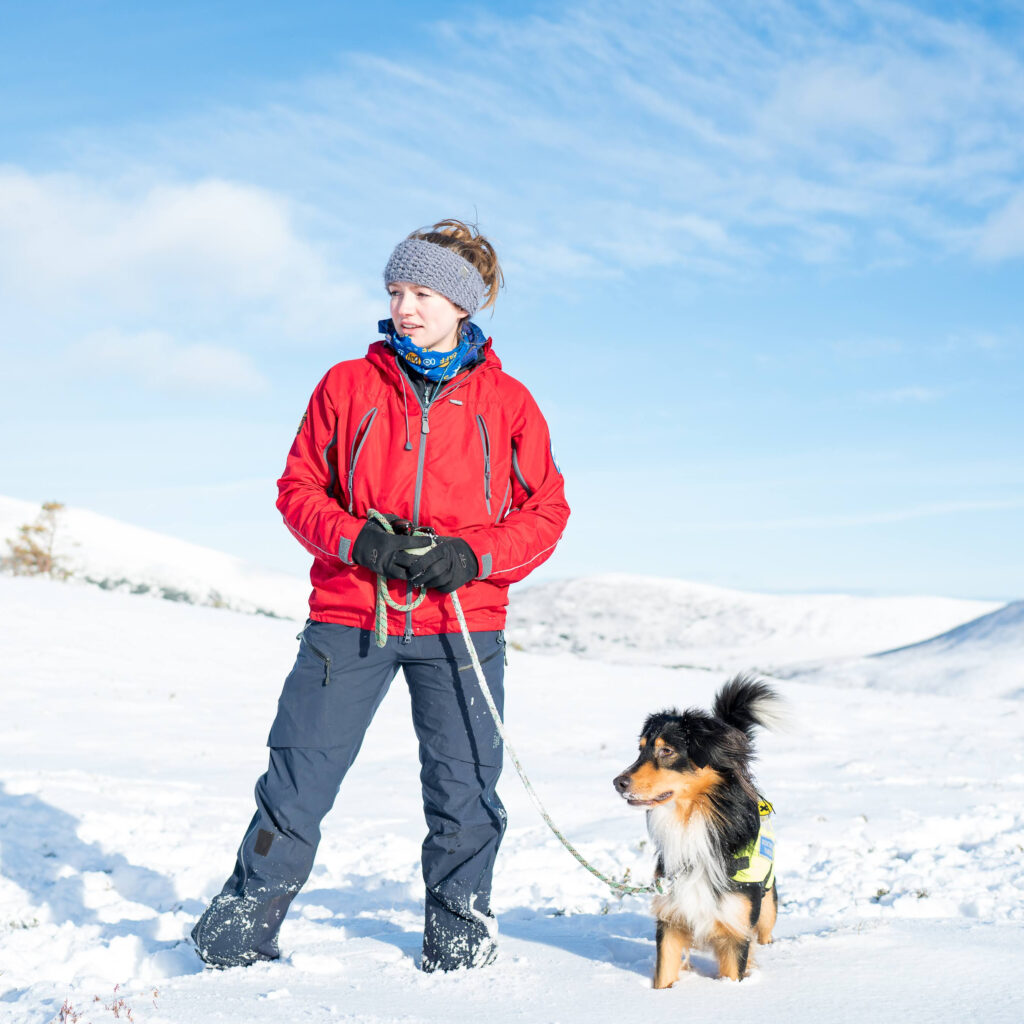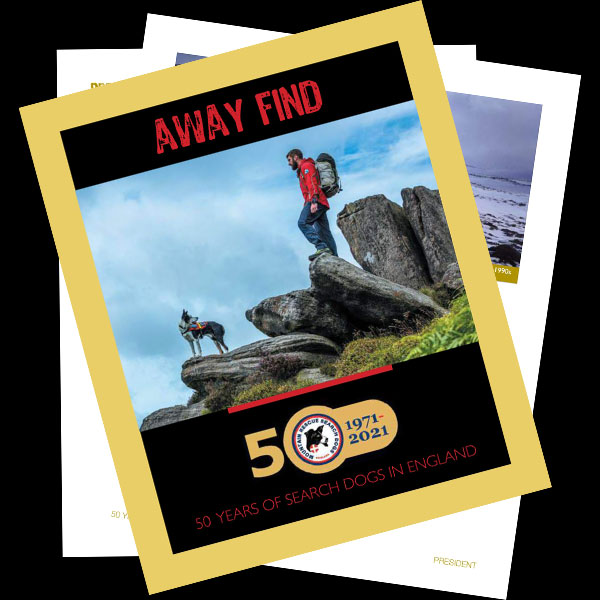About Mountain Rescue Search Dogs England
About MRSDE
The Search and Rescue Dog Association was formed in Scotland in 1965 by Hamish MacInnes, team leader of the Glencoe Mountain Rescue team at the time. He attended an International Red Cross Search Dog course in Switzerland where the were training and assessing avalanche search dogs.
He saw the potential for using dogs to search for lost walkers and climbers within the UK. Upon his return to the United Kingdom. Hamish started training his two German Shepherd’s Rangi and Tiki.
In Dec 1964 a training course with Mountain Rescue Members from throughout the UK was held in Glencoe, encouraged by this course, and the potential shown by the dogs. A meeting was held in May 1965 and SARDA was formed.
SARDA initially covered the whole of the UK. By 1971 it had become devolved into Scottish, English and Welsh associations. Further developments led to the modern day, with the present formation of Associations: Mountain Rescue Search Dogs England, Lake District Search Dogs, SARDA Ireland North, SARDA Ireland South, SARDA Scotland, SARDA South Wales, SARDA Southern Scotland, SARDA Wales and SARDA Isle of Man.
Mountain Rescue Search Dogs England is a member of Mountain Rescue England and Wales

Why use dogs?

At MRSD England, we train our dogs as ”Non discriminatory air scenting” search dogs. That is to say they are not given a scent article with the scent of a particular person, but are searching for any human scent in the air.
Every minute, you lose around 40,000 little pieces of skin (called rafts) into the air, and onto the surfaces around you. The composition of these skin rafts are unique to each person, even those from identical twins are different! Some of these rafts are lighter than air can get caught in the wind and are blown about.
Dogs noses have 300 million receptors in those nose, compared to around 6 million for us, and the area of their brains set up to process smells is, proportionally, 40 times larger than ours.
Due to their superior sense of smell, dogs can pick up the scent from these rafts from ¼ of a mile away, or more from a person, and with the right training, can guide their handler back to the source of the smell. As dogs don’t rely on their sight, it doesn’t matter if it’s night time, the dog can search just as well as if it were a clear day.
Weather conditions and local geography can affect how the scent spreads out from a person, and it is the skills of the handler in getting his or her dog into the best position to pick up any scent that can make the difference between finding a missing person, and not.
At MRSDE we train both the dogs and handlers on how best to find a scent, and what do do once it’s been found!
There are no substantial studies on the success of dogs searching via. an air scent, but from our experience, during assessments, in excess of 96% of the dogs bodies that the dogs look for are found, so we’re confident that in a real emergency, our dogs will make a find if the person is in their search area!
50 YEARS OF SEARCH DOGS IN ENGLAND
There are about 8.5 million dogs thought to be in the UK of which 0.001% are Search and Rescue dogs so you can understand how special they really are!
In December 1964 a training course with Mountain Rescue Members from throughout the UK was held in Glencoe. Encouraged by this course and the potential shown by the dogs a meeting was held in May 1965 and SARDA was hatched and started to grow.
Now in our 50th year we have made a book “Away Find” that celebrates our history, people and achievements throughout the decades.
